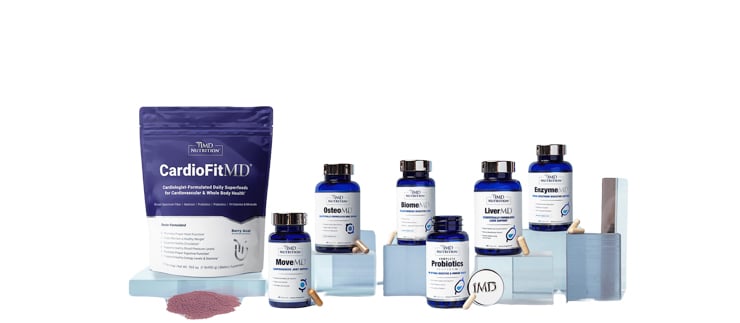Parents With Fibromyalgia Should Avoid These 5 Things
Parenting can be challenging even when you are doing it right. Normal fatigue as a parent typically comes from the demands of daily caregiving, household responsibilities, and juggling work or other commitments. It’s often temporary and may improve with rest or a change in routine. However, parents coping with Fibromyalgia might find this journey downright overwhelming. Since this autoimmune disease leads to extreme exhaustion and pain, they may feel like giving up on their duties.
Fibromyalgia is a chronic condition that causes tenderness and muscle pain. Anyone can get diagnosed with it, but women are more prone to it than men. According to NIH MedlinePlus Magazine, Fibromyalgia may be linked to the brain’s inability to process pain signals properly.
As a parent, you should be physically and mentally fit to provide for your children. Therefore, if you suffer from Fibromyalgia, there are five things you should avoid to manage your condition better. To learn more, keep reading this article.

How To Know You Have Fibromyalgia?
Fibromyalgia is an autoimmune disease and there aren’t any visible physical changes associated with it. If you have swollen joints, you might want to get another diagnosis. Consulting with a General Practitioner can be helpful.
However, most GPs will ask you to consult a rheumatologist for further confirmation. It is also crucial to understand that other health conditions, such as anxiety, depression, lupus, and IBS, can coexist.
What to Avoid in Fibromyalgia to Be a Better Parent
As a parent, managing your Fibromyalgia is essential to reducing pain and enhancing your quality of life. When you prioritize your well-being, you’ll be better equipped to care for your children and handle the demands of parenting. While every journey is unique, certain habits and triggers can worsen symptoms. Here are five things to avoid that can help improve your situation:
Excessive Physical Activity
Exercise can help parents with their Fibromyalgia, but don’t overdo it. Overexertion can cause fatigue and prevent you from exercising for many days in a row. It’s best to create a moderate exercise regime, such as swimming, that doesn’t overly tire you and stick to it.
You can set a benchmark by using an activity-tracking device or a heart-rate monitor. Walking is an easy option for most parents. Family walks offer time to have fun together and discuss your day. They can take short-breaks between their household chores and work to complete 5000 steps per day, which is a good starting point for people with Fibromyalgia.

Using Opioids to Reduce Pain
Drugs, such as corticosteroids, NSAIDs, and opioids can be effective in providing relief for Fibromyalgia pain. Parents should model responsible medication use for their Fibromyalgia, as children may adopt unhealthy habits if they see overreliance.
The FDA-approved drugs for managing Fibromyalgia are milnacipran (Savella), pregabalin (Lyrica), and duloxetine (Cymbalta). These medications are specifically designed to target the symptoms of Fibromyalgia by addressing nerve pain and abnormal pain processing in the brain.
Here’s how each of these medications works and what they are used for:
- Milnacipran (Savella): A selective serotonin-norepinephrine reuptake inhibitor (SNRI) that helps regulate pain signals and improve mood.
- Pregabalin (Lyrica): A medication that calms overactive nerves, reduces pain, and improves sleep quality.
- Duloxetine (Cymbalta): Another SNRI that works on pain pathways in the brain while also addressing symptoms like depression and anxiety, which often coexist with Fibromyalgia.
Opioids are not recommended for Fibromyalgia because they can cause dependency, have significant side effects, and do not address the underlying nerve pain characteristic of Fibromyalgia. Research shows that opioids may worsen Fibromyalgia symptoms over time by altering pain perception.

In April 2023, researchers from the Ohio State University and the University of Michigan shared their findings on this issue. Out of 125 people they surveyed, 39 of them had Fibromyalgia. They found people who used opioids to reduce their pain said that their addiction to them increased manifold.
Suboxone as a Solution for OUD?
Suboxone, an FDA-approved drug to treat their OUD (opium use disorder) is a solution, but not a viable one. Unfortunately, this drug has a vast range of side effects, the most prominent one being dental health issues.
Keith King, a man from Ohio, suffered extreme tooth decay after using this medication for 16 months. In his Suboxone tooth decay lawsuit, he mentioned having to get many teeth extracted. If you have had a similar predicament, seek legal recourse. In June 2024, AboutLawsuits.com reported that 9,600 new plaintiffs had joined a bundled complaint to seek justice and compensation for their losses.
With a pH of 3.4, the acidic nature of the medication affects the enamel. A few other side-effects of the medicine are:
- Blurred vision.
- Headache.
- Constipation.
- Burning mouth syndrome.
- Nausea.
- Tongue pain.
TruLaw states that severe dental issues can affect you emotionally, physically, and financially. Hence, parents who’ve used Suboxone might have to spend a lot on dental surgeries to address dental problems.
That aside, acute gum or dental problems can lead to social anxiety and self-esteem issues, which affect your relationship with your kids.
Parent with Fibromyalgia Consuming Excess Sugar
Sugar can reduce blood pH levels and worsen Fibromyalgia. Fruit juices and acidic soft drinks with added sugar can increase inflammation. That, in turn, can aggravate the pain parents face with Fibromyalgia. Using some substitutes like stevia or organic honey is a better option, but moderation is key.

Not Having Enough Sleep
According to WebMD, not getting adequate sleep can aggravate pain and lead to restless legs syndrome. Parents with Fibromyalgia should ensure they sleep well to improve focus and better care for their children. Make sure you sleep and wake up at the same time every day.
If you find it tough to sleep early or on time, develop a bedtime routine, such as listening to a sleep subliminal track or reading a book. Also, ensure you turn off the lights before falling asleep, as this helps maintain your circadian rhythm.

Unmanaged Stress in a Parent with Fibromyalgia
Everyone experiences stress, but managing it effectively is the key to better living. If you have a tendency to get anxious or overwhelmed easily, find ways to manage it. Massage helps to reduce stress and ease muscle pain. You can use a tennis ball or any other firm object to release muscle tension and ease the pain. You may also seek professional help, as it can help you relax and feel better.

Taking Care of Yourself for Better Parenting
Parents with Fibromyalgia should take good care of themselves to ensure their pain doesn’t hinder their duties. This way, they can spend quality time with their children, attend to their academic needs, and also provide them with better guidance. Although it is tough to eliminate the pain entirely, avoiding the five things mentioned above can help manage this condition to a vast extent.

-
Start the New Year Strong With Talkspace Online Therapy
If the New Year tends to stir up big feelings, you are not alone. Talkspace online therapy makes it easier to get support without rearranging your entire life. You can connect from home, from the car line, or from the couch late at night. Talkspace is an online therapy platform that connects you with a…
-
Building a Home Gym? These XTERRA Fitness Machines Are Deeply Discounted
The XTERRA Fitness sale is doing the most right now. If you want a home gym setup that actually gets used, price matters. So does choosing equipment that fits real life. These are the four machines with the biggest discounts, and what each one is actually good for. MB550 Indoor Cycle 70% offSale price: $299.99…
-
Staying Well Through the Holidays
Staying Well Through the Holidays with wellness gifts and essentials for fitness lovers, travelers, and busy holiday hosts.
-
Choosing the Best Supplements for Adults Over 40
Discover the best supplements for adults over 40 from 1MD Nutrition to support gut, liver, bone, and eye health.
-
Walk Into Wellness: WalkingPad Walking Station Now $299.99 (Was $599.99)
It’s officially time to take your health seriously—and there’s no easier first step than walking. The WalkingPad Walking Station is now just $299.99 (was $599.99) at Dick’s Sporting Goods. It ships free for a limited time. Shop it here This smart treadmill makes it simple to add movement to your day without the hassle of…
-
Daily Health Tips That Are Easy to Follow
Explore daily health tips that are easy to follow and help create lasting wellness habits for your everyday life.










